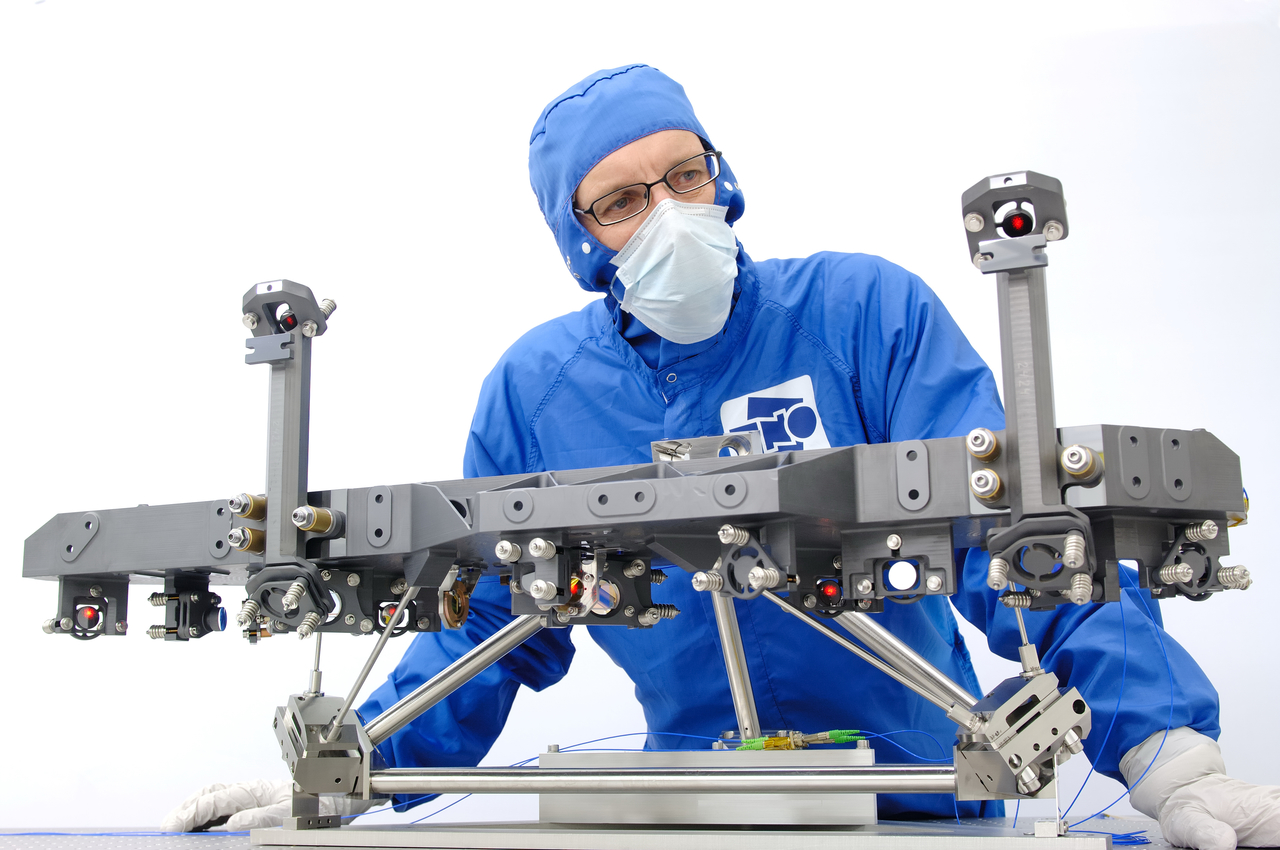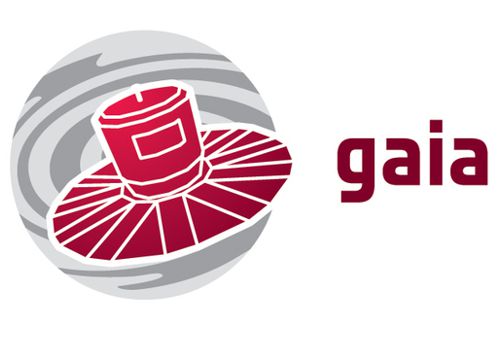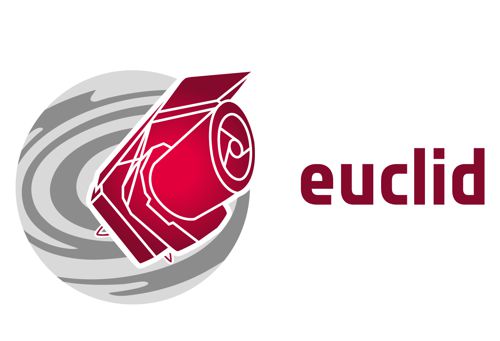

Credits: TNO, Fred Kamphue
The need to have a multidisciplinary technological group dedicated to the conception, development and implementation of HW and SW techniques for highly precise and accurate angular measurements both from the ground and from space emerged naturally twenty years ago to sustain the astrophysical and fundamental physics objectives of the Local Cosmology group.
The research activities are focused on the study, design and implementation of optical-mechanical and algorithmic solutions for future sub-μas level astrometric missions; development of calibration techniques to mitigate and control any systematic errors and minimize random errors; development of software solutions for the technological-scientific exploitation of data from archives and mission databases; implementation of the procedures for data analysis and the construction of pipelines for Science Ground Segments.
A remarkable competence in the coordination and management of the Science Ground Segment for space missions was acquired during the participation in the Gaia mission. Most of the members are part of the Gaia Data Processing Center located in Turin.
Currently the group consists of 8 core members and 3 collaborators engaged at different levels.
Personnel
Researchers: U. Abbas, D. Busonero, R. Buzzi, M. Gai, E. Licata, R. Morbidelli, A. Riva, A. Vecchiato ( Collaborators: B. Bucciarelli, R. Drimmel, M.G. Lattanzi)
Main Research Fields
Instrument design, concept, and operation definition for fundamental physics experiments in the optical and near infrared domain;
Differential astronomy techniques;
Image calibration techniques for μas/sub-μas level astrometry;
Science pipeline system design and development for real-time calibration, instrument monitoring and science data reduction;
Database manipulation;
Science data management;
High Performance Computing.
Methods
• Development of innovative optical-mechanical design and solutions for future astrometry mission concepts
• Instrument concept, design, and operation definition for fundamental physics experiments
• Design, analysis, integration and verification of interferometric/metrology instrumentation
• Development of real-time monitoring and diagnostic procedures for space or remote instrumentation
• Development of high precision astrometric techniques for space missions
• Advanced error budget and calibration tools for sub-as level global and differential astrometry
• Development of calibration techniques for systematic errors control and mitigation and random errors minimization
• Design, development, integration, and operation of data processing software systems for space missions (from telemetry to the mission science data products)
• Innovative measurement principles and observation strategies for space astrometry including performance analysis
• Design of data reduction pipelines for high-precision astrometric missions
• High-Performance Computing (HPC) with massive parallel environments and High-Throughput Computing (HTC) for data reduction, simulations, and Data Mining
• Database-driven scientific archives and exploitation
• Development of instrument models for real-time, fine and long-term calibration and attitude reconstruction tools for high precision and high accuracy space missions
• Coordination of science ground segment data processing infrastructures
Contacts
Deborah Busonero Email: deborah.busonero at inaf.it


